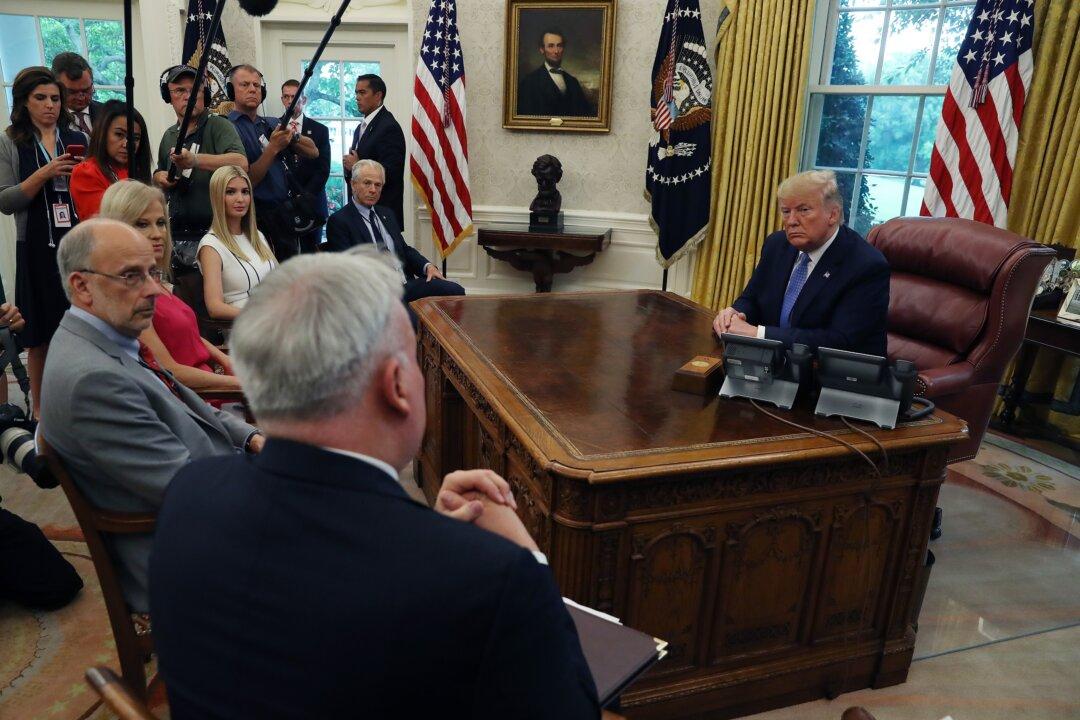Chinese state media and officials have openly adopted a hardline stance against Washington since U.S. President Donald Trump announced plans to impose new tariffs on $300 billion worth of Chinese imports.
In an Aug. 4 commentary, Chinese state media Xinhua fired back that fentanyl, the synthetic drug that has contributed to the United States’ opioid crisis, was a problem for which “the United States only had itself to blame.” Meanwhile, data from the U.S. Department of Agriculture (USDA) shows that China recently cancelled orders of 14,700 tons of U.S. pork.





